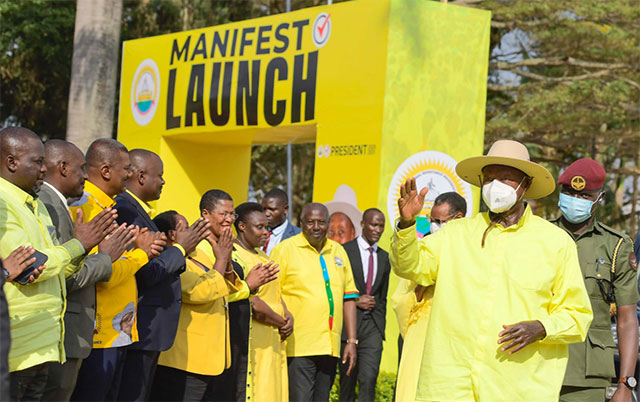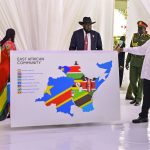Published on 26/10/2025
President Yoweri Kaguta Museveni has unveiled a new National Resistance Movement (NRM) manifesto that places Science, Technology, and Innovation (STI) at the heart of Uganda’s next phase of transformation, outlining a scientific roadmap to accelerate the country’s march toward high middle-income status.
Described by the President as a “blueprint for modernity,” the manifesto prioritizes research, industrial innovation, and commercialization of home-grown technologies as key drivers of national development. The plan underscores the government’s shift from a consumption-based to a knowledge-based economy, one rooted in discovery, invention, and production.

“The next Kisanja will not be about rhetoric—it will be about results,” President Museveni said, adding that Uganda’s economic future depends on harnessing science and innovation to create wealth, jobs, and competitiveness.

Over the last five years, the government has made significant strides in promoting home-grown innovation. Scientists, once marginalized in the public sector, have been elevated in both status and remuneration. Research institutions have been strengthened, and several local innovations have begun to take shape.
Among the achievements highlighted are Kiira Motors’ rollout of electric vehicles, Dei Biopharma’s vaccine and pharmaceutical production initiatives, and Jena Herbals’ scientific validation of indigenous medicines under Prof. Patrick Ogwang. The National Agricultural Research Organisation (NARO)’s anti-tick vaccine and Alfasan Uganda’s veterinary biomedical developments also demonstrate tangible progress in scientific innovation.
The new manifesto builds on these foundations with a forward-looking agenda that emphasizes commercialization, research funding, and infrastructure for science and technology. The proposed Hi-Tech City is expected to become a major hub for private sector investment, innovation, and industrial research, linking academia and industry under one ecosystem.
Additionally, the NRM plans to establish a network of science and technology parks across the country to regionalize innovation and foster enterprise development. Intellectual property laws will be strengthened to safeguard and reward Ugandan inventors.
Education reform remains central to this vision. The manifesto pledges to deepen STEM (Science, Technology, Engineering, and Mathematics) education across all levels to nurture a generation of problem solvers and innovators. Vocational and technical training institutions will also receive renewed support to align skills development with industrial needs.
In infrastructure, the government aims to accelerate the transition to green mobility. The manifesto highlights plans to expand the use of electric buses, establish charging stations, and promote energy-efficient transport solutions. The Mpoma Earth Station is also slated for an upgrade to enhance weather forecasting, land mapping, and disaster preparedness capabilities.
The manifesto further proposes modernization and commercialization of indigenous herbal medicine, ensuring that traditional knowledge is scientifically refined and integrated into the mainstream health sector.
President Museveni said the NRM’s science-led approach represents a deliberate pivot from dependency to self-reliance and from raw exports to refined products. “Uganda cannot continue being a market for others. We must produce what we consume and export what we innovate,” he emphasized.
The manifesto positions science and innovation not as secondary enablers but as the central pillars of economic transformation. It envisions Uganda as a competitive player in the global knowledge economy—one that designs, builds, and exports technologies rather than merely adopting them.
In essence, the NRM’s new scientific blueprint is a call for a national awakening — one that places Ugandan ingenuity at the forefront of development. With this shift, the government hopes to entrench a culture of innovation, enhance productivity, and move the country decisively toward modernity.
“The future is not something we wait for,” President Museveni said. “It is something we build—through science, technology, and innovation—by Ugandans, for Uganda.”






